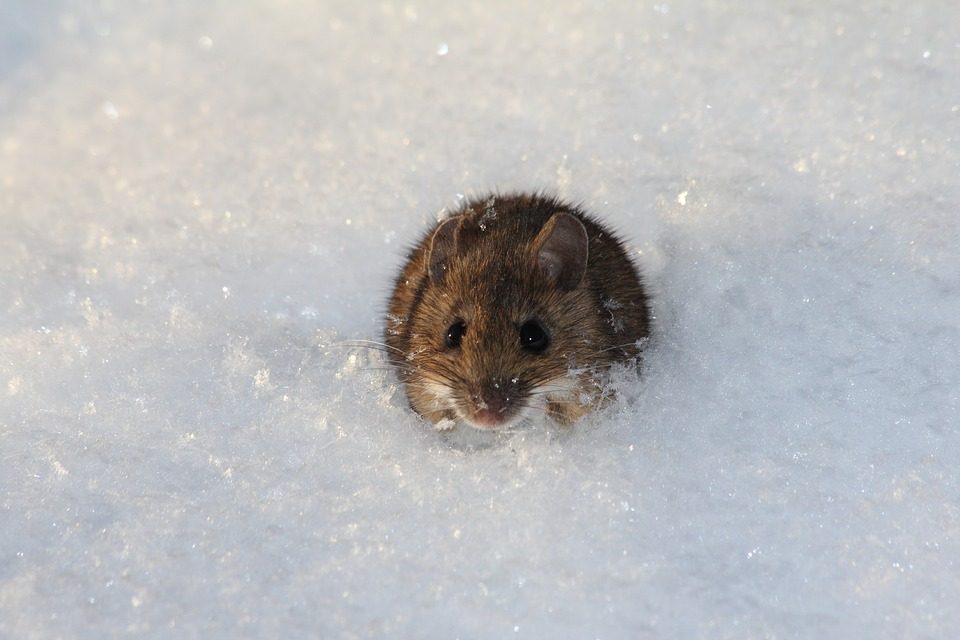Have you ever wondered how small animals such as mice, voles, and shrews survive the winter? Unlike those who migrate and hibernate to avoid the cold, small mammals make their homes beneath the snowpack. The subnivean zone, or the area between the surface of the ground and the bottom of the snowpack, provides protection from the bitter cold and wind and shelter from predators. Mice, voles, and shrews stay well fed from the abundance of grasses, leaves, bark, seeds, and insects trapped beneath the snow.
Heat from the earth melts the snow, creating water vapor that rises to the surface of the snowpack and condenses, forming a thin layer of ice. This roof of ice slows heat loss from below and protects the subnivean zone from the whistling winds of the harsh Minnesota winter. Even in the dead of winter, and into the warming spring, the subnivean zone remains around 32°F. It only takes 6 inches of snow for mice, voles, and shrews to have a safe winter habitat, although snowpacks a minimum of one foot deep are ideal.
Despite the relative safety and comfort of living under a blanket of snow, owls have incredible hearing and can sense mice, voles, and shrews scurrying around in the subnivean zone from as far as 30 yards away. In one fell swoop, owls routinely snatch up small mammals seemingly out of sight.
With the onset of spring fast approaching, other challenges present themselves. Sudden thaws, rainfall, and floods can drown out subnivean dwellers. Frequent thawing and refreezing weakens the structure of the snowpack and eventually leads to collapse.
The next time you explore the Arb this winter, keep your eyes out for air holes in the snow and dig a pit next to one. You might just discover an intricately connected network of tunnels and living spaces you never knew was there!
–Samara Kroeger ’21, for the Cole Student Naturalists
Photo Courtesy of Simon Roy

Comments
Thank you for the interesting work. Your interest shows thru in your words!